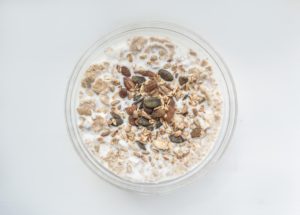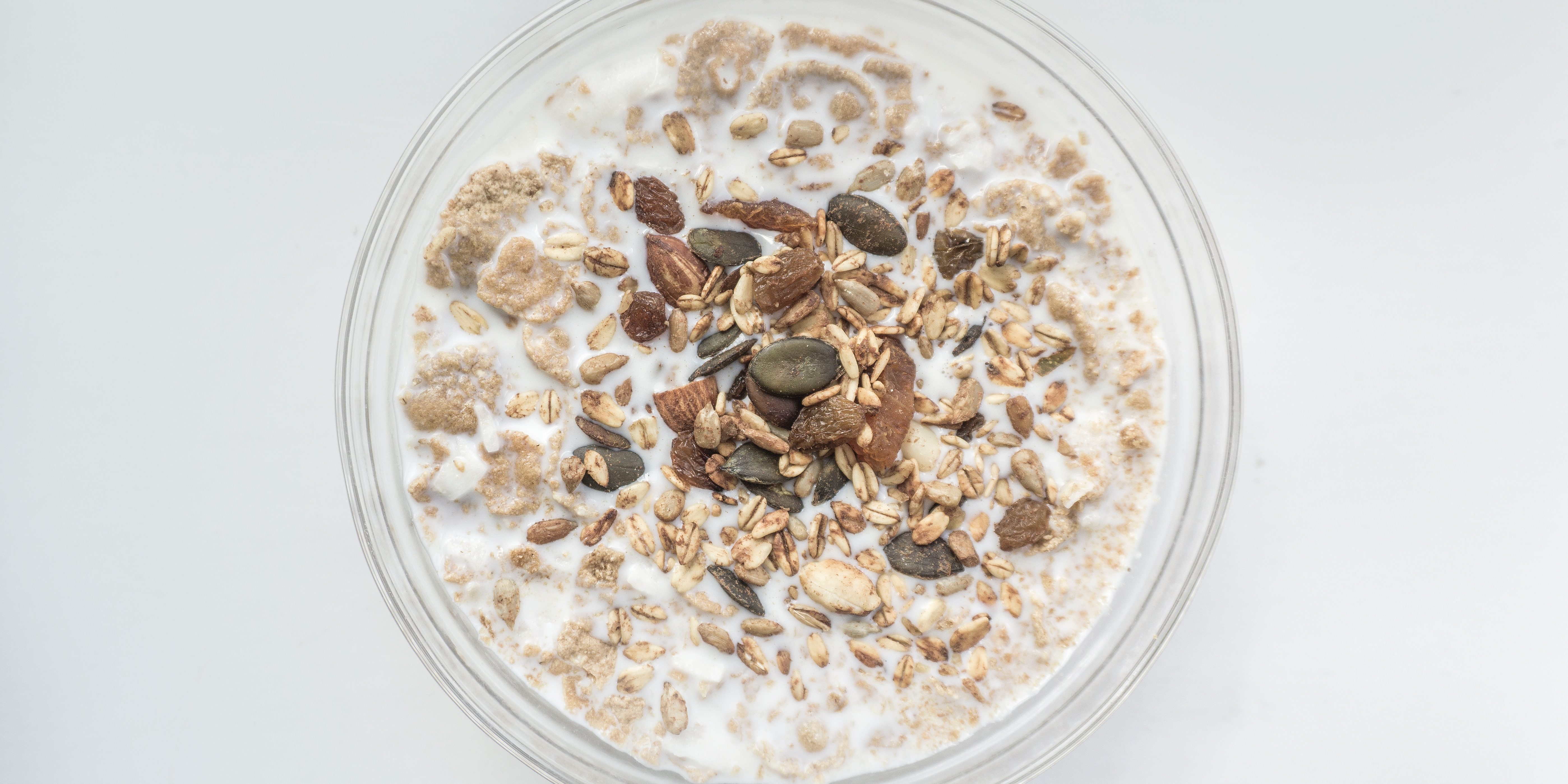 When we think of fiber we often think of digestive health. But fiber does more than just keep you regular, it is also beneficial in fostering heart health. Unfortunately, most Americans don’t get enough fiber in their diets. According to the Academy of Nutrition and Dietetics, men and women under the age of 50 should aim for 38 and 25 grams of fiber per day respectively, or 30 and 21 grams per day respectively, for those over the age of 50. Unfortunately, the average person is only takes in roughly 14 grams of fiber per day.
When we think of fiber we often think of digestive health. But fiber does more than just keep you regular, it is also beneficial in fostering heart health. Unfortunately, most Americans don’t get enough fiber in their diets. According to the Academy of Nutrition and Dietetics, men and women under the age of 50 should aim for 38 and 25 grams of fiber per day respectively, or 30 and 21 grams per day respectively, for those over the age of 50. Unfortunately, the average person is only takes in roughly 14 grams of fiber per day.
According to the American Heart Association (AHA), about 2,300 Americans die of cardiovascular disease each day which is an average of one death every 38 seconds – cardiovascular disease, including heart disease and stroke, remains the leading global cause of death with more than 17.9 million deaths each year. However, the AHA notes that simple lifestyle changes, including staying active and getting enough fiber in your diet, can improve your heart health and lower your risk of developing cardiovascular disease.
What is fiber?
Fiber is a complex carbohydrate that your body can’t digest or absorb, so it passes through you undigested. Fiber comes in two varieties: insoluble and soluble.
- Soluble fiber is found in oatmeal, beans, nuts and fruits such as apples and berries. Soluble fiber absorbs water and turns into a gel-like substance (visualize adding water to oatmeal). Soluble fiber attaches to cholesterol particles in your digestive system and helps to pass them out of your body, aiding in the reduction of your overall cholesterol level and risk of heart disease.
- Insoluble fiber, AKA “roughage” is found in seeds, skins of fruit, whole grains, brown rice, etc. Like soluble fiber, insoluble fiber can help you maintain a healthy weight by staving off hunger and keeping you feeling fuller longer without adding many calories to your diet. This is important as maintaining a healthy weight is also part of a heart friendly lifestyle.
Both types of fiber have been linked to heart health. Fiber’s role in preventing heart disease is thought to stem from its ability to lower blood pressure and cholesterol while also aiding in maintaining a healthy body weight. Foods high in fiber are generally low in calories and fat and tend to help you feel fuller longer. “Some fiber functions as a prebiotic, providing an important fuel source for beneficial intestinal bacteria, called probiotics that promote good health,” said Helaine Krasner, RDN, CDN, Registered Dietician in Mather Hospital’s Center of Excellence in Metabolic and Bariatric Surgery.
Maintaining a healthy lifestyle with exercise and a proper diet rich in high fiber foods can help keep your heart healthy. Make an effort to add more high fiber foods to your shopping cart the next time you’re at the grocery store. Having easy, grab and go whole fruits, veggies or nuts with you to eat throughout the day will help you add more fiber to your diet. “When increasing fiber in your diet, go slow, especially if fiber has not been part of your diet. Make sure to drink enough fluid, as an increase in fiber will require an increase in fluid intake. When preparing your meals, experiment with adding fiber in different ways. Take it one meal at a time!” says Celeste Gorman, MS, RD, CDN, Clinical Nutrition Manager in Mather Hospital’s Food and Nutritional Services department. For a listing of high fiber foods to add to your shopping list look at this chart.


